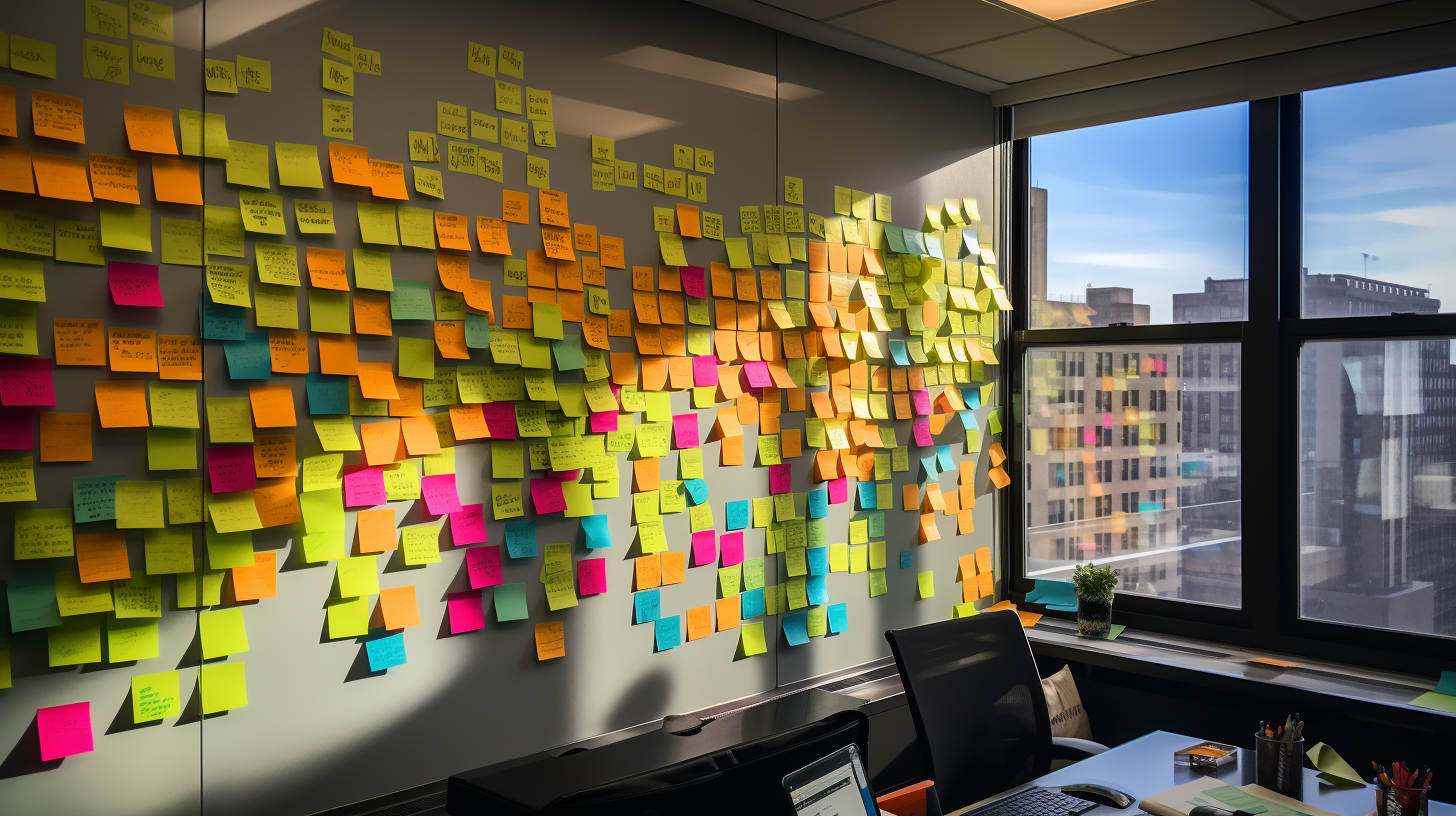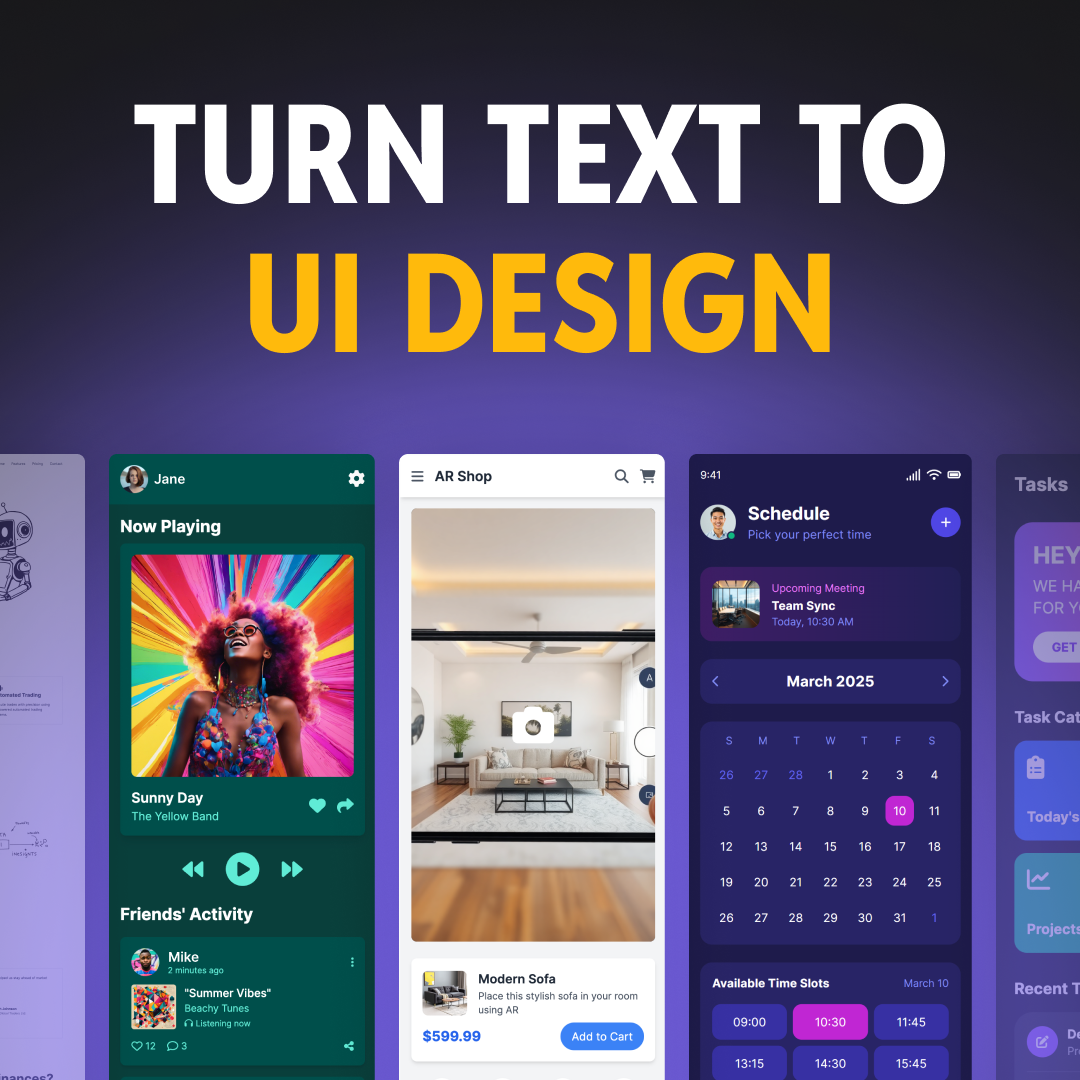The digital landscape is vast, evolving, and brimming with innovation. For any product or service to stand out, user experience (UX) is paramount. Delving deep into understanding the user and molding experiences based on those insights can be achieved through UX workshops.
In this article, we'll discuss the top 5 UX workshops that have gained popularity and proven their effectiveness in the design community.
What's a workshop?
A workshop is a structured and interactive session where a group of participants collaboratively explore, discuss, and solve specific challenges. In the context of UX, these workshops focus on improving or devising user-centric designs, strategies, and solutions.
Benefits of a Workshop
Collaboration
Workshops act as melting pots where team members from various disciplines come together. They aren't just about a singular vision; instead, they offer a platform where developers, designers, marketers, and other stakeholders can share their insights and knowledge.
This cross-functional collaboration bridges gaps between departments, ensuring everyone is on the same page. It breaks down silos and creates an environment where diverse perspectives contribute to a more holistic solution.
Rapid Problem Solving
In the fast-paced digital world, waiting too long to address issues can be detrimental. Workshops provide a focused environment where pressing challenges are highlighted and addressed head-on.
The interactive setting of a workshop allows for quick brainstorming, instant feedback, and immediate ideation. This dynamic nature not only speeds up the problem-solving process but also ensures that solutions are more in tune with real-time challenges.
Structured Learning
Workshops are not mere problem-solving sessions; they are structured avenues for learning. Participants can delve into specific topics, guided by experts or facilitators who offer hands-on experience.
They provide a safe space for team members to experiment, make mistakes, and learn from them. With clearly defined objectives and outcomes, workshops can act as mini-training sessions, enhancing the skill sets of attendees while also working towards tangible project goals.
User-Centric Focus
At the heart of every UX workshop lies the user. These sessions are designed to continuously shift the spotlight back onto the user's needs, preferences, and challenges. By conducting user research, analyzing feedback, and implementing user-centric methodologies, workshops ensure that the end products or solutions are tailored to resonate with the target audience.
This emphasis on user-centricity ensures that designs are not just aesthetically pleasing but also functionally relevant, enhancing overall user satisfaction and engagement.
Top 5 UX Research Workshops
1. Information Architecture
Information architecture workshop dives deep into the mental models of users, aligning system structure or defining the future structure of the product. It's essential for understanding how users navigate and interact with a product.
📅 When you should conduct it: When initiating a new project to establish a baseline or during a redesign phase to refine the user journey.
👥 Who should come: UX/UI Designers, Information Architects, Product Managers, and Key Stakeholders.
📝 What's the deliverable: A comprehensive sitemap illustrating the product's content hierarchy, user pathways, and proposed navigation structure.
The full version is accessible through our Figma plugin
2. Persona Workshop (Persona WS)
Building empathy is crucial in UX design. This workshop serves as a conduit to user expectations from a broader perspective. Designers often find the takeaways from this session resonate deeply with them.
📅 When you should conduct it: At the outset of product development to grasp user profiles or when revising features to ensure alignment with evolving user needs.
👥 Who should come: UX/UI Designers, User Researchers, Marketers, and Product Managers.
📝 What's the deliverable: Well-defined user personas detailing demographics, behaviors, needs, motivations, and potential pain points.
The full version is accessible through our Figma plugin
3. DFV Matrix
Striking a balance between elaborate prioritization and simple impact/effort scaling, the DFV matrix is user-friendly. Participants can quickly grasp its concepts, and its scalability ensures deep, meaningful insights when needed.
📅 When you should conduct it: Whenever there's a need to prioritize features or tasks, especially during the planning or revision stages of a project.
👥 Who should come: Product Managers, UX/UI Designers, Development Teams, and Stakeholders.
📝 What's the deliverable: A matrix showcasing the prioritized features or tasks based on value, feasibility, and desirability.
The full version is accessible through our Figma plugin
4. GROW
Although slightly unorthodox within UX projects, the GROW framework can provide clarity on topics that might otherwise be overlooked. It's a unique way to address and solve design challenges.
📅 When you should conduct it: When addressing complex problems or goals, or when seeking clarity on objectives and the roadmap to achieve them.
👥 Who should come: Team Leaders, UX/UI Designers, Project Managers, and Stakeholders.
📝 What's the deliverable: A clarified roadmap or action plan highlighting the Goals, Realities, Options, and Ways forward.
The full version is accessible through our Figma plugin
5. Mindmapping
Mindmapping is not just for Information Architecture. It's a versatile tool, perfect for visualizing user flows, structures, components, and thought processes. Its storied history and proven track record make it an excellent tool for transferring mental models onto paper.
📅 When you should conduct it: At the brainstorming stage of a project or when there's a need to visualize complex information structures.
👥 Who should come: UX/UI Designers, Information Architects, Product Managers, and anyone involved in ideation.
📝 What's the deliverable: A visual representation or mindmap detailing user flows, content structures, thought processes, and potential connections.
The full version is accessible through our Figma plugin
Outro
UX workshops are more than just sessions of brainstorming; they are the building blocks of successful, user-centric designs. By understanding and implementing the right workshops, designers can tap into the core of what users truly desire.
Whether you're just beginning your UX journey or are a seasoned professional, these workshops offer invaluable insights. And with the templates provided, you're all set to dive deep into the world of user experience. Let the designing begin!





